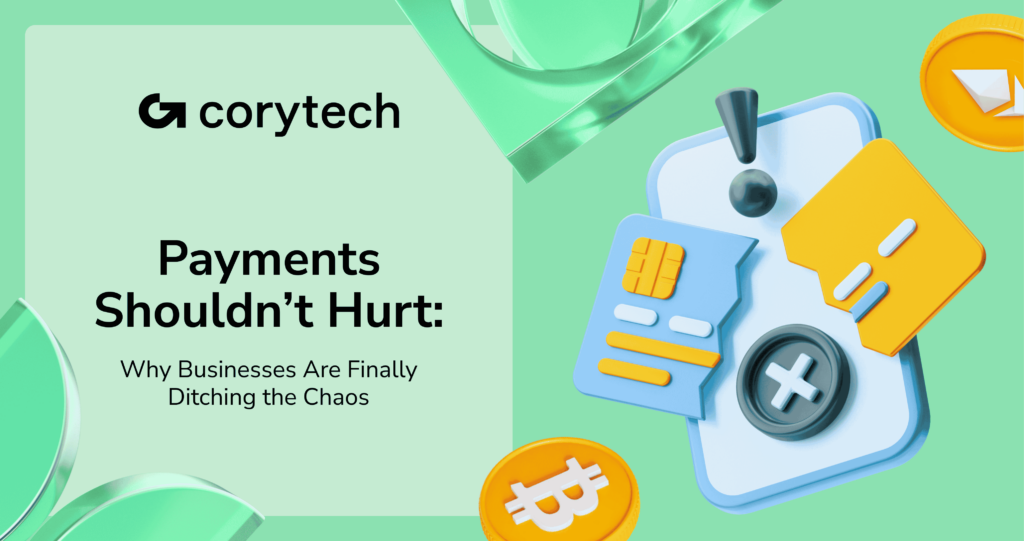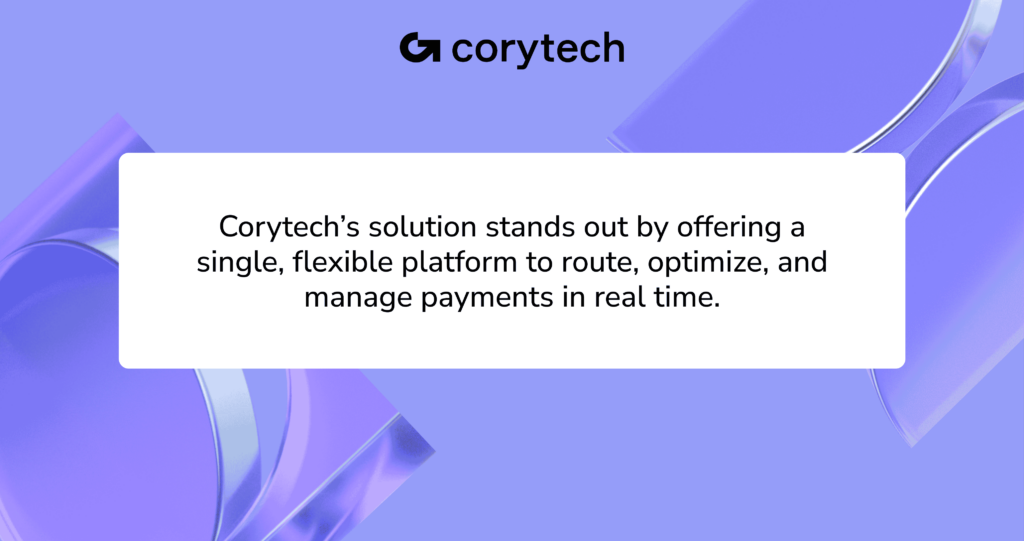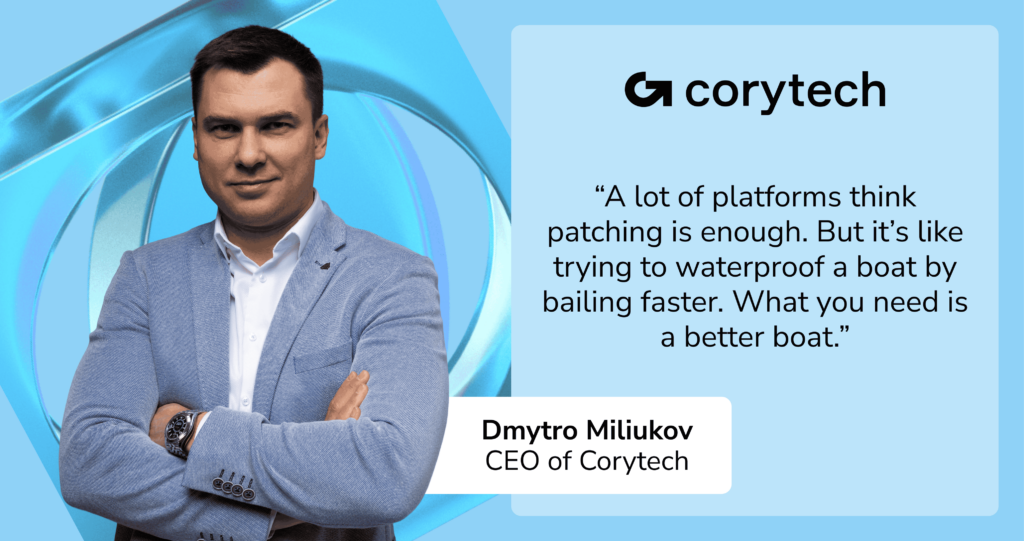Picture this: a customer’s payment fails mid-checkout, not because of lack of funds, but due to a routing hiccup between incompatible systems. Multiply that by hundreds – or thousands – of daily transactions, and you’ve got yourself a mess. And not just any mess – a mess that eats into revenue, team morale, and sleep.
If you ask business leaders in sectors like iGaming or fintech what keeps them up at night, they’ll rarely say “too much success.” What they’ll mention instead? Fragmented systems. Missed payments. The constant threat of fraud. Most importantly, the sheer complexity of making payments works across jurisdictions.
“We see it all the time,” says Dmytro Miliukov, CEO of Corytech. “One region has new tax rules. Another mandates a local payment method. And meanwhile, your platform is still patching together five different gateways to process a single deposit.”
No wonder payment orchestration platforms are having a moment. But for many, it’s not a moment too soon.

When ‘Just Make It Work’ Isn’t Enough Anymore
Let’s be honest: payment infrastructure isn’t fun. No founder brags about how fun integrating a new fraud detection API or configuring currency conversion tables is. But when these systems break down, the fallout is immediate – and expensive.
Without orchestration, here’s what usually happens:
- Teams waste hours wrangling dashboards from five different providers.
- Failed transactions go unaddressed, leading to churn and customer distrust.
- Local compliance gets overlooked until it’s too late (and costly).
- Fraud slips through the cracks in the chaos.
That’s where orchestration flips the script.
According to the study “Payment Orchestration Platforms: Achieving Streamlined Multi-Channel Payment Integrations,” tackling these challenges requires a thoughtfully architected platform built for security, scalability, adaptability, and resilience — all while staying aligned with industry standards and regulatory requirements.
One Integration. Fewer Headaches. Real Growth.
The promise of payment orchestration isn’t just technical – it’s emotional. It’s the relief of knowing that your operations team doesn’t have to start every Monday morning chasing broken payment chains. It’s fewer sleepless nights. More focus. Actual momentum.
Corytech’s paytech solution stands out by offering a single, flexible platform to route, optimize, and manage payments in real time. One integration connects you to multiple acquirers, payment methods, currencies, and regions. There is no code spaghetti, and no duct-taped dashboards.

Think of it as the difference between having a universal remote and juggling five separate ones. You could make them work – but why would you?
Where Things Usually Fall Apart (And How to Fix Them)
Let’s talk about where businesses usually get tripped up. Corytech’s team has mapped what they call the five “zones of stress” in modern payments:
- Fragmentation – Too many systems, not enough harmony.
- Cross-border complexity – Taxes, regulations, exchange rates… good luck.
- Scalability gaps – Growth exposes every weak point in your stack.
- Fraud risk – The more chaos, the easier fraud to slip in.
- Downtime – When payments break, trust erodes.
“A lot of platforms think patching is enough,” Dmytro Miliukov, CEO of Corytech, adds. “But it’s like trying to waterproof a boat by bailing faster. What you need is a better boat.”
With features like intelligent routing, auto-fallback for failed transactions, and native compliance tools, Corytech isn’t just patching holes – it’s changing the vessel entirely.

Why Now?
Because the pain is peaking. In 2023 alone, over 60% of B2B enterprises moved to orchestration platforms, seeing the writing on the wall. Transaction volumes are exploding, customer expectations are tightening, and tolerance for downtime is nonexistent.
So maybe it’s time to stop thinking of payments as a source of anxiety – and start treating them as what they could be: a competitive edge.
Disclaimer: Corytech is a fintech company that provides a payment orchestration platform. All payment processing services, including fiat and crypto transactions, are performed by regulated third-party payment service providers integrated with the Corytech platform. Corytech does not hold or transmit funds.


